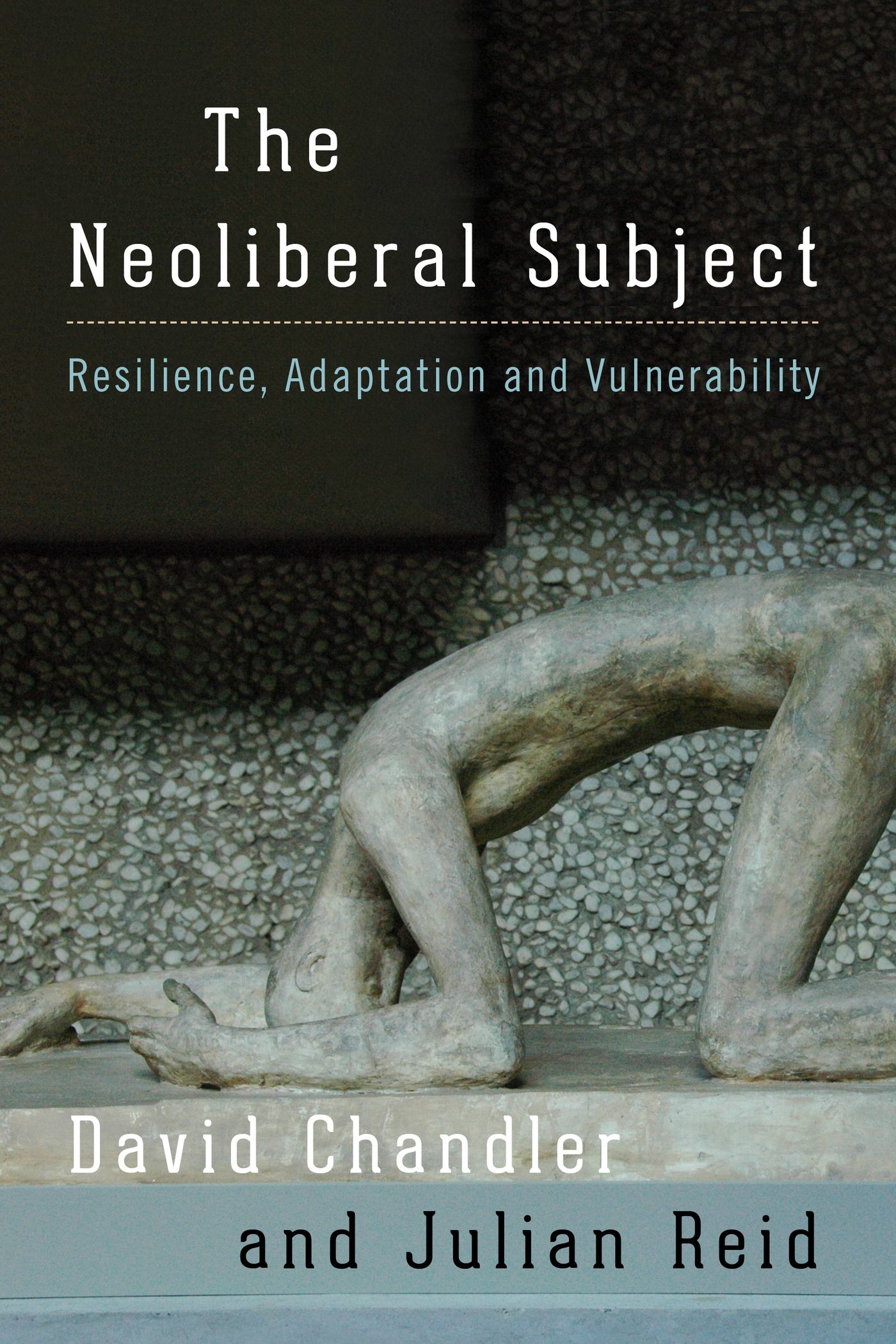The Neoliberal Subject
The Neoliberal Subject
Resilience, Adaptation and Vulnerability
David Chandler and Julian Reid

London New York
Published by Rowman & Littlefield International, Ltd.
Unit A, Whitacre Mews, 26-34 Stannary Street, London SE11 4AB
www.rowmaninternational.com
Rowman & Littlefield International, Ltd. is an affiliate of Rowman & Littlefield
4501 Forbes Boulevard, Suite 200, Lanham, Maryland 20706, USA
With additional offices in Boulder, New York, Toronto (Canada), and London (UK)
www.rowman.com
Copyright 2016 by David Chandler and Julian Reid
All rights reserved. No part of this book may be reproduced in any form or by any electronic or mechanical means, including information storage and retrieval systems, without written permission from the publisher, except by a reviewer who may quote passages in a review.
British Library Cataloguing in Publication Information Available
A catalogue record for this book is available from the British Library
ISBN: HB 978-1-7834-8771-4
ISBN: PB 978-1-7834-8772-1
Library of Congress Cataloging-in-Publication Data
Names: Chandler, David, 1962- author. | Reid, Julian (Julian David McHardy), author.
Title: The neoliberal subject : resilience, adaptation and vulnerability / David Chandler and Julian Reid.
Description: London ; New York : Rowman & Littlefield International, [2016] | Includes bibliographical references and index.
Identifiers: LCCN 2015044202 (print) | LCCN 2016004665 (ebook) | ISBN 9781783487714 (cloth : alk. paper) | ISBN 9781783487721 (pbk. : alk. paper) | ISBN 9781783487738 (Electronic)
Subjects: LCSH: Neoliberalism. | Liberalism.
Classification: LCC JC574 .C4825 2016 (print) | LCC JC574 (ebook) | DDC 320.51/3--dc23
LC record available at http://lccn.loc.gov/2015044202
 TM The paper used in this publication meets the minimum requirements of American National Standard for Information Sciences Permanence of Paper for Printed Library Materials, ANSI/NISO Z39.48-1992.
TM The paper used in this publication meets the minimum requirements of American National Standard for Information Sciences Permanence of Paper for Printed Library Materials, ANSI/NISO Z39.48-1992.
Printed in the United States of America
Introduction
The Neoliberal Subject
Resilience is becoming the key term of art for neoliberal regimes of governance. Across and throughout international relations, practices are being reshaped around the need to develop the capacities of humans, individually and collectively, for resilience. Resilience is currently propounded by neoliberal agencies and institutions, especially, as the fundamental property that peoples and individuals worldwide must possess in order to become full and developed subjects. We are writing this book to address the political and philosophical implications of this shift. It is the first study of the implications of neoliberal discourses of resilience for theories and practices of human subjectivity.
In spite of its claims to make humans more adept and capable in their dealings with the world, the promotion of resilience requires and calls forth a much degraded subject, one defined by much diminished capabilities for autonomy and agency, so crucial to the formation of human subjectivity. Rather than enabling the capacities of peoples and individuals for autonomy so that they can make their own decisions as to how they wish to live, the discourse of resilience understands autonomy as a threat to life. The resilient subject is one that has been taught, and accepted, the lessons concerning the danger of autonomy and the need to be capacity-built in order to make the right choices in development of sustainable responses to threats and dangers posed by its environment. Thus the process of constructing resilient subjects requires divesting peoples and individuals of any belief in the possibility of determining their own conditions for development and security, and accepting instead the necessity of adaptation to the realities of an endemic condition of global insecurity and to the practice of sustainable development instead.
In drawing out the theoretical assumptions behind the drive for resilience and its implications for issues of political subjectivity, we are writing this book to establish a critical framework from which discourses of resilience can be understood and challenged in the fields of governance, security, development, and in political theory itself. In place of resilience we will argue, in our individually distinct and contrasting ways, that we need to revalorize an idea of the human subject as capable of acting on and transforming the world rather than being cast in a permanent condition of enslavement to it.
Understanding Neoliberalism
Neoliberalism is, according to current orthodoxy, best understood as a theory of political economic practices proposing that human well-being can be advanced by the development of entrepreneurial freedoms within an institutional framework characterized by private property rights, individual liberty, unencumbered markets, and free trade (Birch and Mykhnenko 2010; Chomsky 1998; Harvey 2005; Saad-Philo and Johnston 2004; Steger and Roy 2010; Touraine 2001). It is about the growth of consumer sovereignty and the shift from ideological political contestation to the use of market-based tools and techniques to achieve political and social goals (see, for example, Lipshutz 2005: 750), or the rationalisation of the market as the site of truth, in the critical language of Foucauldian economic theorists (Jaeger 2013: 34). In contrast we believe neoliberalism is better understood more fundamentally as a theory and practice of subjectivity. We stake the claim that we cannot understand how neoliberalism is able to function as a socioeconomic program, and most especially how it has gained the global hegemony that it has today, without addressing how it problematizes human subjectivity. It is the interpretive capacities through which human beings reflect upon the nature of their world, their relations with themselves, each other, and their environments that are seen as being of crucial issue for the legitimation of neoliberal practices of government.
Doing this necessitates breaking from the existing understandings of what liberal subjectivity entails. Within the disciplines of political theory and international relations, the liberal subject is still identified with the idealized figure of Homo Economicus (Kiersey 2009) founded as that figure was in its supposedly unique capacity for reason and knowledge, its potential to achieve sovereignty over nature, and its pursuit of security and autonomy. In contrast, we will show how neoliberalism is based upon a fundamental rejection of the figure of Homo Economicus and the promotion of a subject neither rational or autonomous nor empowered or secure in its relations with nature. We will argue that the form of subjectivity inculcated through neoliberal discourses of risk, security, and governance today, presented as essential to bear the institutionalization of markets, private property rights, and free trade, is not the rational, sovereign subject of mythic representations of the liberal tradition, but a resilient, humble, and disempowered being that lives a life of permanent ignorance and insecurity. The account of the world envisaged and constituted by neoliberalism is one that presupposes the unknowability of the world, and likewise one which interpellates a subject that is permanently called upon to live in accordance with this unknowability; a subject for whom the bearing of risk and its responsibilization is a required practice without which he or she cannot grow and prosper in the world.
Next page
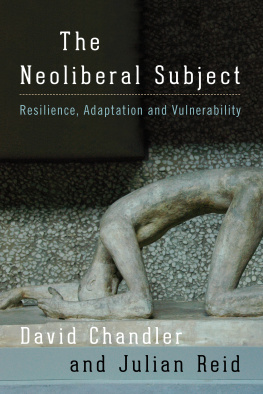




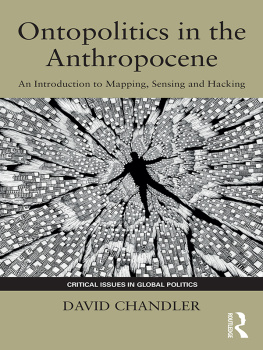


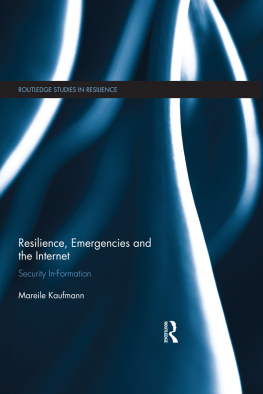

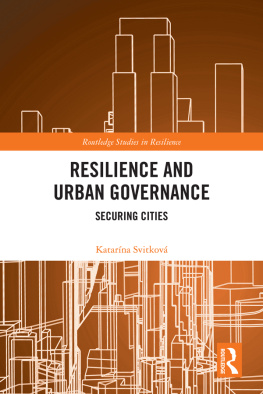
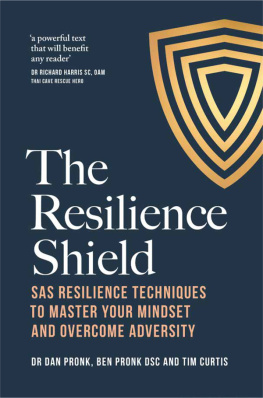
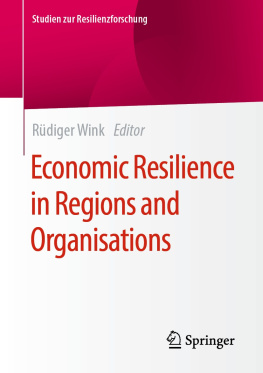
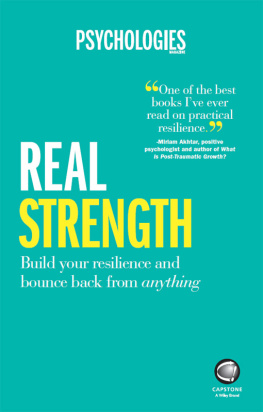
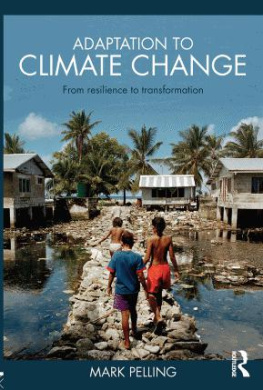

 TM The paper used in this publication meets the minimum requirements of American National Standard for Information Sciences Permanence of Paper for Printed Library Materials, ANSI/NISO Z39.48-1992.
TM The paper used in this publication meets the minimum requirements of American National Standard for Information Sciences Permanence of Paper for Printed Library Materials, ANSI/NISO Z39.48-1992.